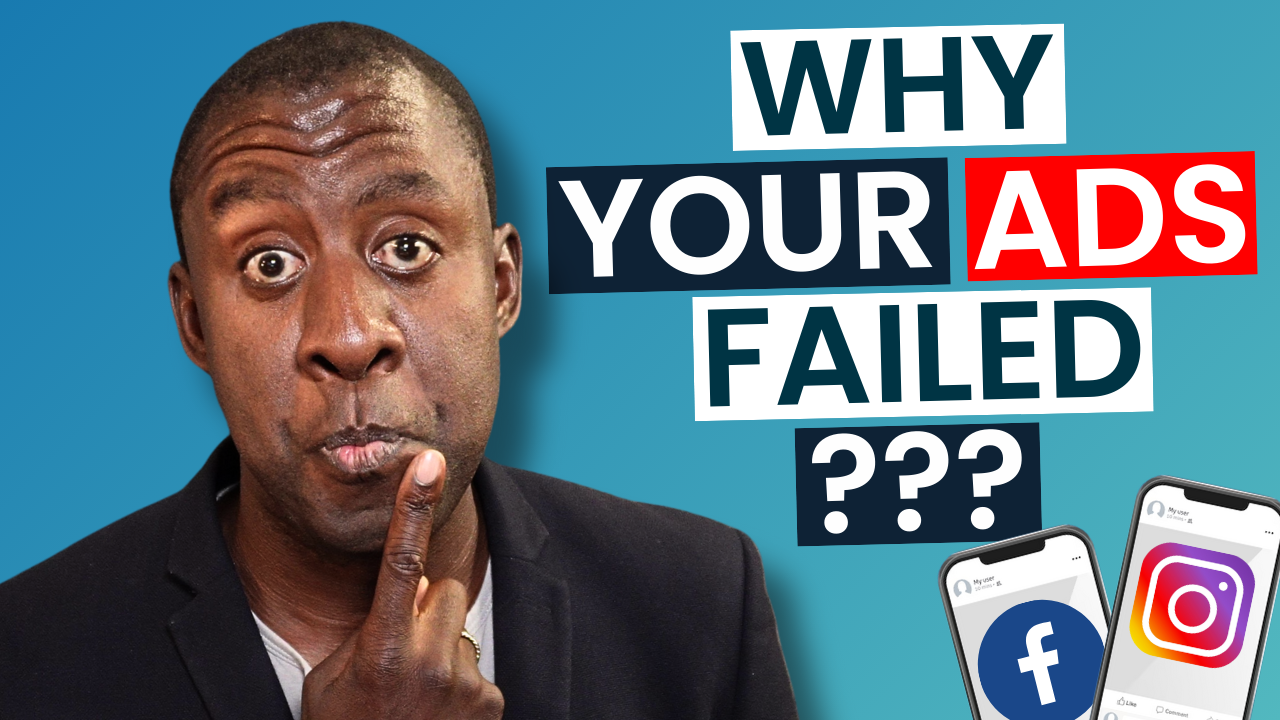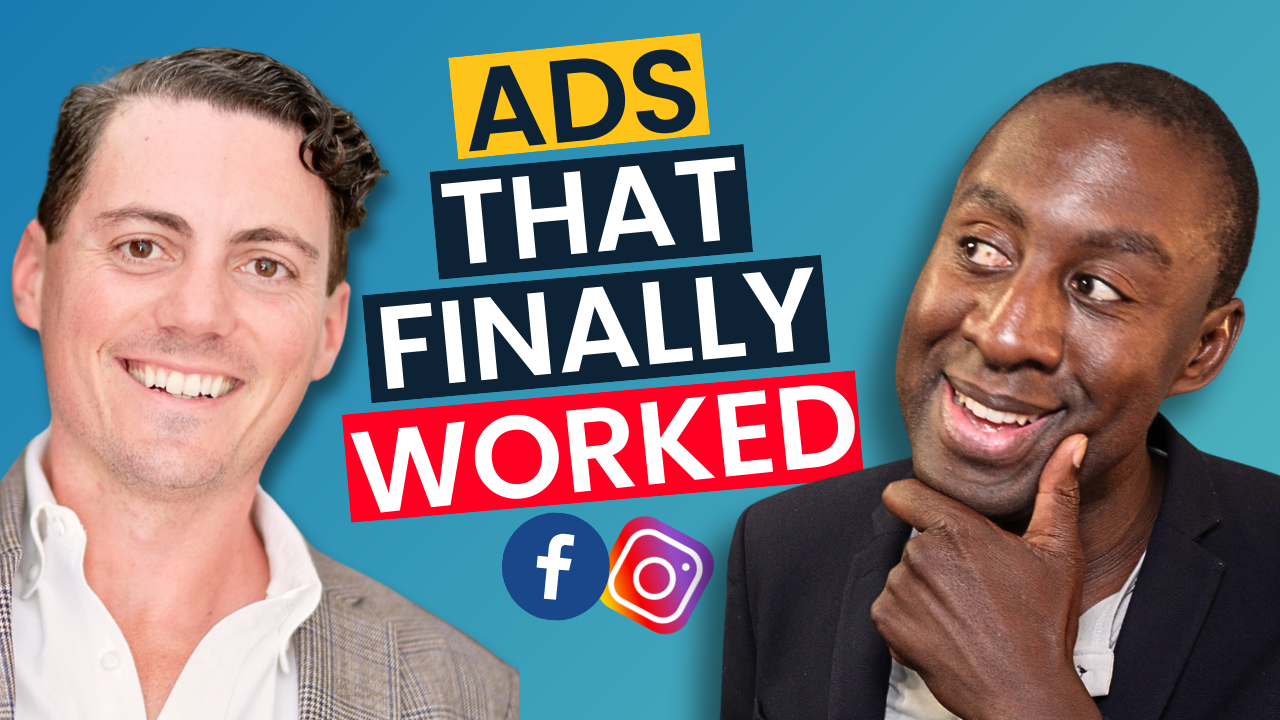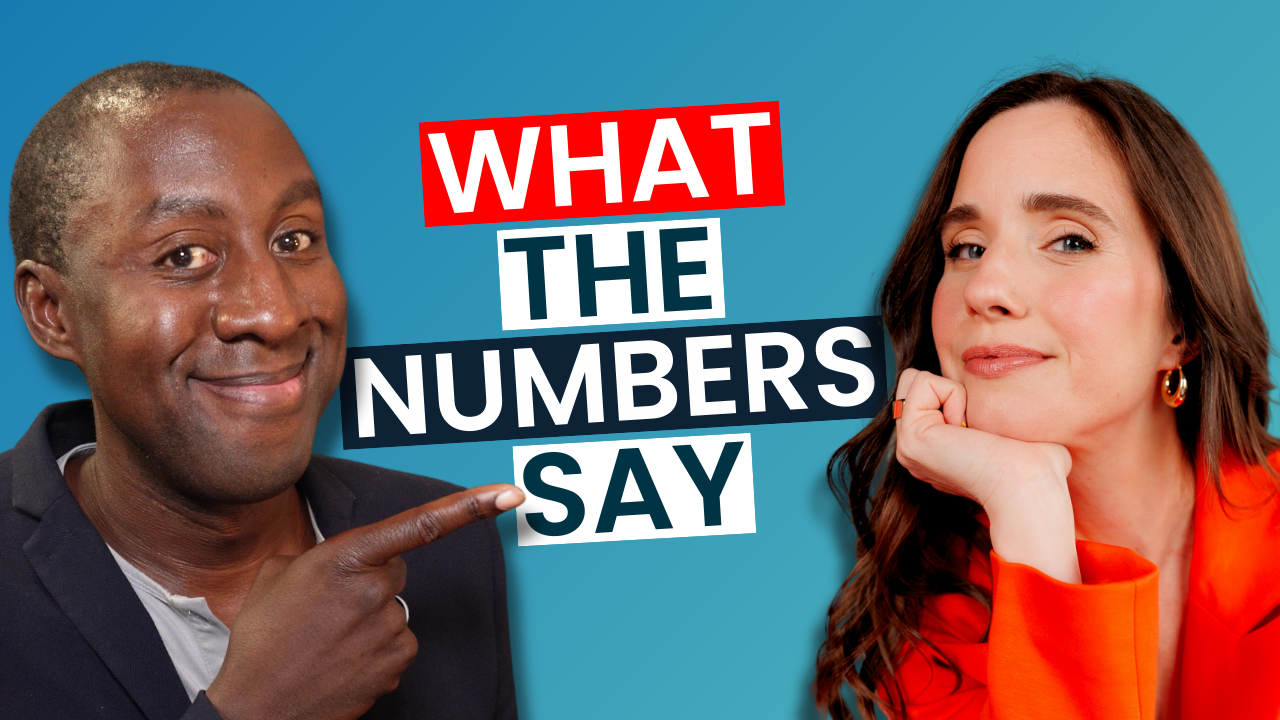Let’s talk about revenue goals.
- Cut your lead gen costs in HALF with my $37 mini-course–NOW only $17!
- Visit The Art of Online Business website for Facebook Ads help
In this episode of Art of Online Business, I’m diving into this topic and why they may not be as important as we once thought. As online entrepreneurs, we’ve all heard that hitting the 7-figure mark is the ultimate measure of success, but what if we’re chasing after something that doesn’t align with our values or our lifestyle?
I hit the $1 M mark and realized that it wasn’t as fulfilling as I thought it would be. In fact, my pursuit of this goal took a toll on my mental and physical health and my relationships.
I hope this episode challenges you to rethink your revenue goals and align them with your values and your lifestyle. Instead of chasing after an arbitrary number, try to think about what we truly need to live the life we want and create a business that supports that.
Ask yourself why you have the revenue goal you do and consider the exercise shared in this episode to create a more meaningful goal that aligns with your values and lifestyle.
Please click here to give an honest Rating/Review for the show on iTunes! Thanks for your support!
Kwadwo [QUĀY.jo] Sampany-Kessie’s Links:
All right. What’s up, my friends? Welcome to today’s episode of The Art of Online Business podcast. Rick here. And on today’s quick tip, I want to talk to you about, I want to call it seven figure brainwashing. And you see, when I first started my online business, I started it back in January of 2014, a little over nine years ago, there was this prevalent message in the online space, and frankly, it has not gone away. It’s still you know, it’s still prevails today that you are, quote unquote successful in your business. When you hit the seven figure mark that you’d made it quote unquote, when you hit $1 million.
So that became my goal, you know, because why not? Everybody was talking about it and everyone was kind of everybody was kind of equating that with, all right, you’re you’re an expert now. You’ve made it. You’re a success. And that’s a heck of a lot of money. Right? So I began chasing that number in my first year in 2014. I was very fortunate to experience great growth. That first year we did $110,000 in the first year. In the second year in 2015, I quadrupled it. We did about a 440,000in the second year and then 2016 we doubled it. Basically, we did about 820in that third year. And then in 2017, so in the first four years, I hit the elusive million dollar mark. And when I hit it, I remember looking at the final year’s numbers for 2017.
I was looking at it in early January 2018, and I was really proud of myself. You know, I was really excited about it. I had quote unquote, done it. But almost immediately I also had this feeling like, All right, that’s cool. Now what? Like, now what? It was almost like this empty feeling because I’d been chasing this number. I hit it and. Okay, cool. But it didn’t quite feel like I thought it would feel. And I’ve, I’ve shared here in the podcast before, but I want to touch on it again right now in this episode.
So in my pursuit of that elusive $1 million year, I put so much pressure on myself to make it work. And as I’ve talked about quite a bit here in the podcast, I’ve been challenged with anxiety for most of my life and it really took a toll on me in that pursuit of that revenue number. My mental health suffered, my physical health suffered, my relationship with my wife Amy suffered. My relationships with my friends suffered. And in pursuit of what hitting a revenue number. That’s let’s be honest, right? It’s based on ego. And and this is no judgment, by the way, if this is your number zero judgment. But I want to I’m going to talk more about this here as I go, because that’s that was my goal. Look, and that was an ego thing.
I was like, I want to make a whole lot of money. And that’s if that’s what it means to make it to say that I’m an expert. Cool. Let’s do it. And so hitting that number that’s that’s based on. Ego so that I could feel confident about myself in saying that I was an expert in Facebook ads, because at that time I was teaching ads and I was selling online courses. I had a membership, I had coaching programs. I had all kinds of stuff. And my identity was wrapped up in the in the success of my business. And I want to come back to this in a second, but I want to repeat what I just said.
My identity was wrapped up in the success of my my business. And it took a toll. Right. And then a funny thing happened in the two years following 2017 when I, you know, hit the million dollars. My revenue went down a bit in 2018 and in 2019, and I couldn’t figure out why. Now, granted, I just we you know, Amy and I had a baby in 20. Well, Amy had the baby in 2018. Maya was born in December. Um, but my revenue went down in 2018 and 2019. So I guess for 2019 to be expected, first year, you know, having a newborn. But it’s still frustrated me so much because again, the prevalent messaging that I kept hearing in the online space was growth, growth, growth.
Like if you see a decline in your revenue, something is wrong. And then one day it clicked and I’m going to get a little bit woo on you right now. Through doing a ton of work on myself, I realized that I was subconsciously self sabotaging myself. My subconscious was basically saying if busting through $1 million in yearly revenue means. You know, doing what it takes in order to do that, that your mental and physical health needs to suffer.
Your relationships need to suffer. Your most important relationship needs to suffer. That I don’t want it right. This is my self conscious subconscious talking saying I don’t want it because it was equating all that suffering with hitting that revenue number. And that was a huge aha for me. That was a that was a huge breakthrough because at that point, I was able to not only become aware of what was actually going on, but I was able to take that awareness and make changes from that place. And so here’s what I did first with that clarity around what was in my subconscious, I could directly work on, you know, changing those subconscious beliefs. That awareness was the first step. Second, I stopped allowing myself to be ruled by needing to hit a certain revenue level. More on that in a second. Third, I allowed myself the reality that I am not my business.
That the success or lack thereof in my business has nothing to do with me as a person. This is really hard. This was so hard to kind of accept. And the business is its own entity. You are not your business. I am not my business. And what I started doing was was thinking of the business, sitting in the chair next to me, or I can just, you know, turn in my chair and give it a high five. But the business, you know, as an entity is separate from me. It was just sitting next to me. And then fourth and this is by far the most important lesson that I learned. I prioritize my health and that of my and that of my families over anything else.
And as I mentioned, I became a dad in December of 2018, and that was by far way more important than any revenue number based on ego, Right. And so whenever I start working with somebody, you know, when I start coaching them, when they come into my accelerator coaching program, I want to know what their revenue goal is for 12 months out. And I want to know this for a number of reasons because, like, what is their goal? And then what do we need to do to hit that goal? Obviously, in terms of a whole bunch of things, you know, mindset systems and processes, sales and marketing team, you know, them being a leader, all those types of things.
And nine out of ten. Nine times out of ten, if they’re not already at $1 million, their goal is to hit $1 million. And then if they’re already at a million, the goal is almost always 5 million. If they’re already at 5 million, it’s almost always they want to hit 10 million. So I always follow up with a question. Why? Like, why is that your goal? Now, don’t get me wrong, I’m not saying that having, you know, $1 million or seven figures as your goal is a bad thing. I’m not saying that at all. Rather, I just what I want to do in asking that question, I want to see if you’re wanting it for the right reasons. Because if it’s an ego thing, you know, because if it’s just you keep hearing this number, meaning like you’ve made it. I want to try to work with you on that. Speaking from, you know, years of experience on that.
I had somebody tell me years ago in Accelerator, they were like, it’s $1 million and I have no other reason other than I want to say that I hit $1 million and they like that was their reason. And like, all right, cool. Like, great. But just be clear on why. That is your goal. And then I want to offer you a different perspective, too. If $1 million is so important to you.
Does it have to be made in one year? Because somebody, you know, people started talking about, well, you only have to do it. You have to do it in a year in order to be this success. Right. Why not? Could you add up the revenue for however long that you’ve been in business? What if it were the rolling last 12 months instead of calendar 12 months or, you know, fiscal year or however you look at your your books? What if that were 12 months or $1 million? What if the last rolling 12 months, say, February to February or June to June or whatever it is? What if that were $1 million? But yet it didn’t happen in 12 calendar months. Still $1 million in the past 12 months. Because if I had looked at it that way back in 2016, I had done almost 1.4 million in those first three years. That’s obviously over $1 million, but it wasn’t done in one year. So hey, I hadn’t hit it yet, you know? Do you see my point here? It’s just a number. And then after all that happened and I had the ahas and insights that I did, I started looking at revenue and profit from the business in a very different way. What I started doing was it was kind of like and I’m not saying again, I’m not saying if $1 million is your goal and it’s based on, Hey, you just want to hit it.
I’m not saying that’s illogical, but I’m just saying here what the way that I started to look at my own revenue goals and this is also something that I that I teach I work with with our with my coaching students is. What was, you know, how much is a lifestyle that my family and I want to have? What does that cost per month?
So I come up with a number. What are my business expenses or what do I want them to be? Okay, got that number. And I simply add those two together. And then on top of that number, you want to add taxes like so because you’re gonna have to pay taxes on it, right? So whatever that number is, there’s your monthly revenue goal. So let’s just say that for this hypothetical that your lifestyle, for your family, you want it to be whatever, $10,000 for an easy number and then your business expenses are $10,000 to. And let’s just say, you know, taxes are going to be. You know, let’s just say per month it’s $5,000 that you want to add on there. I’m just making this up. And so there’s your revenue goal, $25,000 a month. What if that is how you looked at your revenue goals? And I had this exact conversation with somebody recently, and we did this same exercise because there was this chasing of, you know, an elusive number.
And threw it In this conversation, they realize that their number wasn’t anywhere near $1 million. And before my eyes, literally, I saw them relax. I saw the pressure to perform, just release. And the funny thing was that they’d already made a good portion of this new revenue goal already in the year. And I also told him that this that with this less stress and pressure, that they’d very likely still blow through the, you know, still blow through this new revenue goal.
And so because there’s less pressure, there’s less stress to be chasing this number. So here’s what I want you to do. Whatever your revenue goal is in your business, again, there is zero judgment. Whatever your revenue goal is in your business, I want you to ask yourself why. Why do you have that goal? If your goal is $1 million, awesome. Just be clear on why that’s your goal. Do you need to hit it in a calendar 12 months? Could it be a rolling 12 months? Could it be total revenue from the past three years? Have you been in business? Three years. Like if you have an arbitrary revenue goal and maybe it’s not even $1 million, maybe it’s half a million or 100,000 or 50,000, whatever it is, If the number is arbitrary, like so many, so many of us have, let’s come up with a more meaningful goal.
Do the exercise that I just mentioned. How much does the lifestyle that you and your family want to have? What does that cost per month? And you can even play around with that lifestyle amount, right? Like what would that number be for your basic survival stuff, right? And then what would that number be for your current lifestyle? What would that number be for a lifestyle that includes, you know, you’re putting the money away for saving and investing? Et cetera. You can play around with those numbers. And then again, what are your business expenses?
What do you want them to be? Add those two numbers together and then estimate what taxes would be. On top of that, there’s your monthly revenue goal. Now, this actually has meaning behind it because it’s supporting the lifestyle that you want for either yourself or if you have a family, you and your family, because isn’t that why we get into business in the first place, that we want the freedom to be able to create what we want? So you let that be your revenue goal? And then once you have that goal. How do you want to set your business up to hit that goal? And what would it look like? This is the question I always ask our accelerators. What would it look like if it were easy to hit that goal? And remember, when you’re setting it up and granted, most of you are probably already in business, right? So what would you want to change in the business and how you do business? Would you only work a certain number of days, a week or hours a day? Or would you only.
Would you stop doing something or whatever? Remember, we’re creating our business around our life, not the other way around. And then lastly, I want you to remember that you are not your business. You are not your business. Your business is its own entity. Try and picture your business sitting next to you. Your identity is not your business. If your business is a success, if it’s, you know, not doing as well, it means nothing about you as a person. You’re still the same person. So try and picture your business. Kind of like I do sitting next to you in a chair and every now and then turn to give it a high five or a fist bump or a hug or whatever you want to do. Cool.
I hope you found this helpful today. I know this is a conversation that comes up a lot with people, so I wanted just to dedicate a specific episode to this conversation. And if you have any comments or questions or follow ups, feel free to hit me up on Instagram at Rick Mulready. Hope you enjoyed this one today. Until next time my friend, be well and I’ll chat with you soon.





